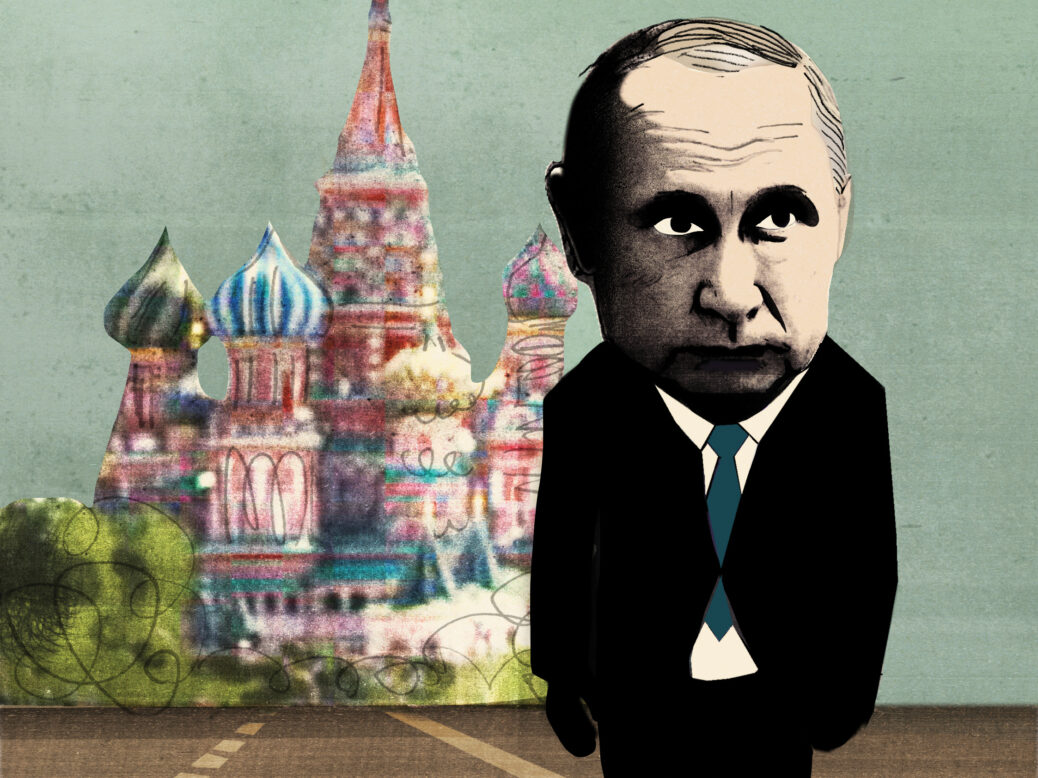
The man whose face we see when we talk about Russia – Russia meddled, Russia invaded, Russia arrested, Russia reacted – commands the media, the electoral system, all four parties in parliament, the governors, the biggest banks and energy companies, most of the country’s financial flows, and the courts, prosecutors and police to boot. Yet for all that power, Vladimir Putin seems remarkably insecure.
The past two decades have been relatively good for most Russians. Per capita gross domestic product has nearly doubled in hard currency terms, from below $6,000 in 1999 (when Putin became prime minister) to almost $12,000 today. Russians are more globally connected than at any period in the country’s history. Moscow and other major cities thrum with culture and creativity. And an entire generation has come of age with no memory of food shortages or hyperinflation.
Yet that is not the full story. Oil prices have been more responsible for economic growth than astute policymaking, 20 million Russians live below the poverty line and incomes have declined for five straight years.
Economic stagnation has been accompanied by recent political turmoil. The summer of 2019 saw widespread anti-government protests on the streets of Moscow, orchestrated by an increasingly resilient political opposition.
After 20 years in charge, are the tides turning against Putin? When Putin first came to power, in 1999 as prime minister and then in 2000 as president, ordinary Russians were the least of his concerns. From the start, he focused on neutralising the elite: the governors and party leaders, the bureaucrats and, of course, the oligarchs. Putin quickly established a quid pro quo: if the elite forsook any attempt to block or resist his power, the regime would protect its wealth and influence.
Perhaps inspired by his time as a KGB agent in East Berlin when the Berlin Wall fell in 1989, Putin has stuck to a simple principle while in office: “Don’t excite the people.” The point was to remain above politics while centralising power and bringing media moguls, business leaders, political parties and regional leaders to heel.
By 2012, however, Putin faced a concerted opposition from prosperous, cosmopolitan urbanites whose vision of Russia’s future no longer included subsidising a corrupt elite. To shore up enthusiasm for his regime, Putin’s strategy was to use divisive social and cultural issues to drive a wedge between the opposition and his core supporters.
Campaigns from 2012 against gay people, migrants, the West and the feminist group Pussy Riot mobilised regime-friendly supporters, marginalised the opposition and boosted his standing among the general public. Putin’s approval ratings soared, and were further boosted after the annexation of Crimea in 2014.
But Putin has been less in control than it seems and the dominant idea that things cannot change politically – a message that has been hammered home for 20 years – may be starting to weaken among the public.
A key institution that has been crucial to Putin’s survival is television. But the people who have tuned into televised diatribes against gay people, religious blasphemers, Europeans and the West were not those who already held those views, but those for whom it was important to be in agreement with their relatives, their colleagues and their friends. Putin did not mobilise Russia’s meanest citizens to his cause; he recruited his nicest compatriots, harnessing their ordinary desire to get along.
Similarly, Putin’s post-Crimea “rally-round-the-flag” campaign was more social than political in its effects. The war in Ukraine led people to watch more political coverage on TV and to talk about politics more with their friends and relatives. The Kremlin-controlled media, which spread the idea of a Russia hemmed in and under siege from Western powers, helped to produce a public euphoria in support of Putin.
But Crimea was six years ago and the country’s deepening economic doldrums are now weighing on Putin’s popularity. As protesters took to the streets in July and August 2019 – railing against everything from rigged elections to environmental degradation – the Kremlin concluded that slick propaganda and PR alone would not work.
The 2,500 arrests, the images of bloodied faces and broken bones, and the slow drip of ongoing prosecutions are designed to send a message that dissent won’t be tolerated. The Kremlin knows that repression will galvanise support for the opposition, leading to further escalation. The calculation is that fear of injury and imprisonment will push moderates to side with the forces of loyalism.
Yet if Putin and his advisers believe that violence will be key to reinforcing his authority and keeping him in power for the next 20 years, they may be mistaken. For all of their outward fealty to Putin, Russians’ true political loyalty is to one another, to the friends, family, colleagues and neighbours to whom they have turned to for support and solidarity through decades of bust and boom. As a symbol of some of Russia’s best days, Putin has floated atop a bubble of popular sentiment. But too sharp a stick and the bubble may finally burst.






